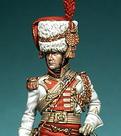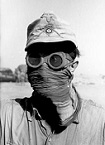Mehring
Posts: 2179
Joined: 1/25/2007
Status: offline

|
quote:
ORIGINAL: SigUp
quote:
ORIGINAL: morvael
I think the hated 1:1->2:1 rule was supposed to do that. Of course it was a crude tool, quite abstract, unlike a separate "tech trees" for offensive and defensive doctrines/tactics/training would be.
If I remember it correctly the original rule applied to the Soviets for the entirety of the war. It was then step by step taken out. I don't think it was ever supposed to specifically encourage early Russian counterattack. Frankly, I think the rule was just not thought out well. With the combat engine already giving a de-facto bonus to the side with more elements the Soviets are already in a position where they can expect a win with CV parity with reasonable chance. That's already something like a +1 rule.
The main problem I see with the engine is that it's too dependent on wins. Soviet counterattacks in 1941 took a toll on the German units but rarely were they able to outright dislodge the Germans from their positions prior to late 1941. So going by this there were only very few Soviet wins in WitE terms. The fluctuation of morale around the wins and losses is also problematic especially with the impact of morale on CV.
To "outright dislodge" a German division in summer 1941, it would have to be surrounded and forced to retreat, not a situation that should happen too often against a competent Axis player. I have read accounts of battalions and regiments being badly mauled or outright destroyed and spearheads being threatened with isolation, so I think the game represents this fairly well. Think of a retreat on either side not as "outright dislodgement" so much as the defender being "encouraged to withdraw." That works for me, anyway.
That said, the Russian attacks of 1941 are a curious problem. I'm currently near the end of summer 41 in a no combat bonus campaign and am trading blows perhaps a little too successfully with the advancing Axis forces. I'm looking forward to checking the combat losses in what has become a hotly contested summer battle.
The issue of element swamping hiding behind the old bonus raises a question. A defender swamped by, or about to be swamped by attackers, will probably withdraw in real life, however elite they are and however many swarms of attackers they are killing. But should these swarms of attackers always be there? That's the issue for me.
The Panther Games "Conquest of the Aegean" has the concept of "orders delay," the time between an order being issued and it filtering down to subordinates and the grunts forming up at a specified location to carry it out. Playing both sides of the Crete scenario opened my eyes to command inefficiency as a material factor in the Commonwealth defeat there. The Germans, in spite of some severe disadvantages, are almost always first off the mark, making CW plans obsolete before they can be carried out. I suspect the same is very true in Russia 1941.
WitE gives us various leader qualities which help in combat, but the only thing I can think of that might be trying to simulate the likelihood- or not- of troops arriving at the battle on time, is the low Russian Mech MP allotment in the first summer also the initiative determined reserve activation. Some leadership qualities help their troops hit and damage their targets, but apart from the MP allotment which is a known quantity at turn beginning, there is no leader quality that helps troops to arrive at their start line on time and in good order. If the unit has MP for the attack it is assigned to, except in the case of large quantities of elements, it is a given that all the elements in the unit fight.
This seems to me, to skip over the that most important, if mundane, aspect of operational military leadership- creating and keeping your force to a timetable. What if, of those 9 divisions you've committed to a battle, only the ones that pass an admin check actually jump off? Combined with a reduction in at-start Russian leadership stats, that could really put an end to over-frequent element swamping. Perhaps a way to make this possible would be to make the MP cost of attacks variable from a base number. Good leaders issue clear instructions reflecting an understanding of their subordinates qualities and the situation they work in. They are more likely to get their subordinates to attack on time, perhaps even chip an MP or two off the standard cost for an attacking unit or two. The consequences of leaders failing in this area might be their subordinate units, or some of them, taking longer than base number and those advancing to attack might run out of MP, thereby not attacking, and their elements not being included, at all.
Such a system would also make the "strip the line to make an attack, then return all units where they came from before the other side notices they're missing" syndrome a risky business. As well as possibly losing MP to interdiction (sadly pretty rare, though WitE 2 may be better) you may also lose MP to attacking under an inefficient commander.
_____________________________
“Old age is the most unexpected of all things that can happen to a man.”
-Leon Trotsky
|
 Printable Version
Printable Version













 .
.  will help.
will help. 

 New Messages
New Messages No New Messages
No New Messages Hot Topic w/ New Messages
Hot Topic w/ New Messages Hot Topic w/o New Messages
Hot Topic w/o New Messages Locked w/ New Messages
Locked w/ New Messages Locked w/o New Messages
Locked w/o New Messages Post New Thread
Post New Thread